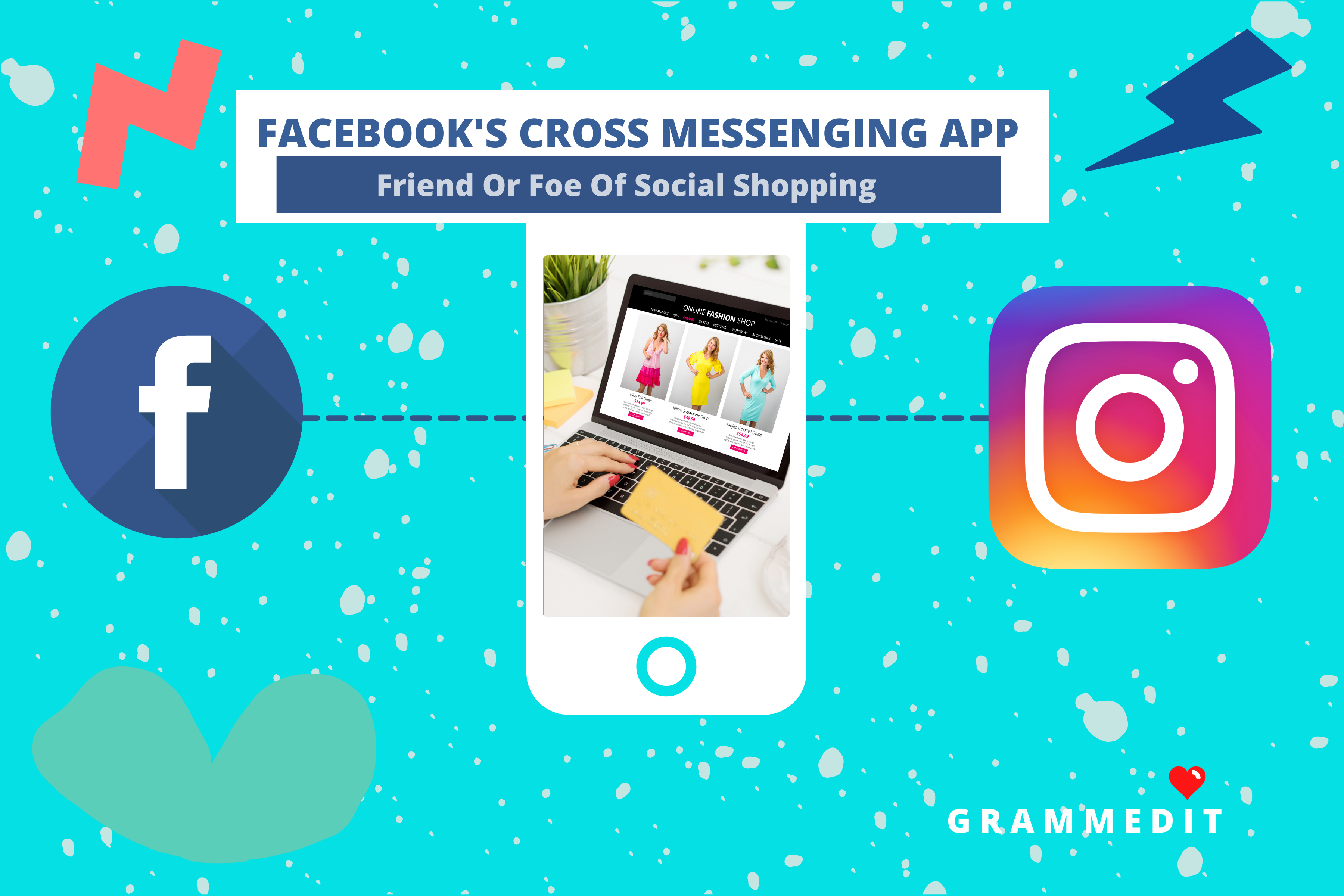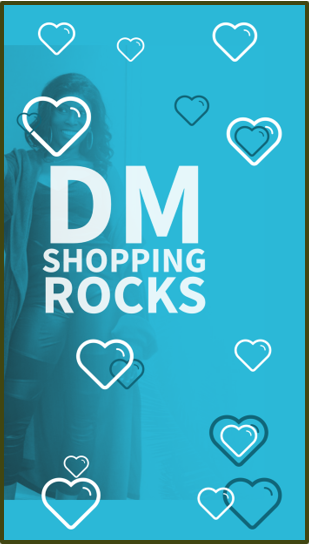
For most businesses, managing their customer base across numerous social media platforms can be exhausting. The task requires a high-end mobile device or a computer that can accommodate and run multiple applications at the same time without crashing.
As new features roll out, many social media giants continue to compete for their audience’s attention as they strive to boost retention time.
While it’s hard to admit that social networks are a top reason we’ve become addicted to our smartphones, these platforms have achieved great strides as they continue to impact how ecommerce is conducted across the globe.
Facebook, the most significant player in the social networking game, repeatedly stands high above the rest by adopting various multipurpose functionalities to facilitate buying and selling conveniently. In 2012 the networking giant purchased Instagram for an unbelievable 1 billion dollars. According to records, Instagram now rakes in more than 20 billion dollars in annual profits.
Social media run business must keep up-to-date on the latest trend in order to capitalize and grow their business. This article will describe the major players and how the latest feature by Facebook could alter the social ecommerce landscape for a few years.
Who’s Winning The Social Shopping Battle?
While social shopping fever is creeping into any platform that accommodates picture uploads and two-way communication, some viral platforms are taking a significant share of the pie.
From our comprehensive research, here is our list of the TOP PLAYERS in the social shopping game:
1. Instagram
Despite being owned by the mother company, Facebook, Instagram isn’t taking a back seat. While initially created as a social network for sharing pictures, it’s shown great potential for social shopping.
Business owners on Instagram take advantage of hashtags and reels to display their products to millions of people worldwide. Fortunately, the ease of communication on Instagram also creates an environment that encourages social shopping. On the flip side, the risks associated with unrestricted level of easy shopping on Instagram can not be over stated. There are so many accounts selling products and services that aren’t worth what they claim to be. Meanwhile, shoppers are being cheated out of connecting with real authentic sellers on Instagram. That why is sellers who want to set a higher standard of authenticity in their ecommerce business on social media are choosing to become a Grammedit certified seller.

A unique feature about Instagram there are tons of third-party apps that make communication more seemless. The incorporation of apps like linkin.bio from Later Media further makes it more efficient to conduct shopping via the platforms. The Detox Market utilizes this tool effectively below.
2. Facebook
Facebook’s introduction of Marketplace and Facebook Group (which enables people to create a controlled marketplace within a specific community) is leading the social shopping race. The network that boasts of nearly 3 billion users has recorded immense success.
3. Pinterest
One application that has taken social commerce by surprise is Pinterest. The company recently juiced up its visuals game through global AR (augmented reality) technology, allowing shoppers to “try on” new clothes or cosmetics before committing to a purchase.
This new feature shortens the consumer buying process and inspires them to make a purchase without further doubts.
4. WhatsApp
While many people think of WhatsApp as just a messaging app, the platform has gradually become a hub used by businesses to communicate with their clients.
With WhatsApp Business’ launch, numerous establishments have encouraged their users to add them on WhatsApp to get real-time feedback on customer complaints and inquiries.
While this is a win for customers, it is also a win for businesses because they can repeatedly show off products on their WhatsApp stories. This means zero cost to advertise to an already highly engaged audience.
5. Twitter
Although Twitter does not have the features that promote a social marketplace, sellers have managed to latch on to trends to showcase their products. While seemingly not a natural fit for e-commerce activities, buyers patronize them nonetheless because of the advantage of real-time two-way communications that it offers businesses.
Twitter’s role in rapid broadcasting of trending topics is setting the standards for meeting customers where they are. According to a survey conducted by Twitter, 85% of followers feel more connected with a small business after following them and brands are taking note. Expect Twitter Inc. to implement more ways to increase busines-to-consumer engagement on their platform.
6. TikTok
At the moment, TikTok is the most popular video sharing network among Generation Z folks. As Gen Z users have shorter attention spans, TikTok is even coming out tops against YouTube as a platform used for entertainment.
While TikTok has already developed a complete Marketplace platform for its Asian users, other people from different parts of the world are doing fine buying and selling items through the messaging feature.
Facebook’s Cross-Platform Masterstroke
Despite the availability of numerous social media shopping applications, no one can offer an omni-channel (or multiple platform) marketing like Facebook. This is because the social giant repeatedly boosts its reputation by offering unrivalled access to billions of shoppers from around the globe.
Of the previously listed social networks that accommodate social shopping, Facebook’s convenient introduction of the cross-platform messaging feature in February 2021 puts it light-years ahead.
With this recently released feature, platform users can now communicate with their friends across Facebook and Instagram from a single messaging app.

While several users are raising privacy concerns, business owners who manage multiple businesses across both platforms have welcomed the interoperability feature.
How Will Small Businesses Be Affected?
Before Facebook’s new feature, numerous resources were required for businesses to keep up with the fast pace of social shopping. Facebook’s new cross-platform feature, however, means a level playing field for businesses of all sizes.
The cross-platform masterstroke eliminates the need for high-end equipment. Consequently, small businesses who were not able to afford high-end tech can now more adequately compete with their larger counterparts for customer attention. As well, small businesses no longer need to expend resources towards hiring different social media specialists to manage customer interactions across multiple platforms.
What Will This Mean For Social Interaction?
With the introduction of the cross-platform messaging feature, businesses can now manage their clients’ requests and orders efficiently. Messages from specific users are grouped to help businesses achieve a streamlined inbox experience.
The Impact Of Facebook’s Future Implementations On Transactional Efficiency
As Facebook continues to break existing records, recent news has revealed that the social giant will be implementing a new payment gateway to simplify transactions.
With this new update, one-click payments will become a new norm, drastically cutting down transaction time and simplifying the social shopping payment process.
What Facebook Cross-Platform Messaging Will Mean For Social Shopping
Although it’s hard to pick a side, most of the hesitation with this feature comes from social shoppers as they continue to voice their views with valid arguments to support or oppose the new normal. Some of the arguements agains ideas include:
Privacy
For most users, the primary concern with the cross-platform messaging feature is privacy. There are fears of this feature might make it vulnerable to bad actors who might easily steal data and conversations on both platforms once an account is compromised. In addition, shoppers legitimately believe that businesses may have unlimited access to their personal information and will be able to miss-use their data in unethical manner.
Targeted Advertising
Concerned shoppers who aired their views on Reddit that the parent company, Facebook, will have access to much more information than it would without the feature. This information could be used to Facebook’s advantage to influence a user’s spending by displaying laser-targeted ads.
The Pros:
Ease and convenience
While most of the comments seem negative, there are many businesses and influencers embracing cross-platform messaging as a welcome development.
Some businesses believe that switching between apps to respond to a message takes too much time. The new feature makes message response easier, thereby significantly cutting response times.
Requires Less Resources
One significant upside of cross-platform messaging is that businesses will no longer require high-end mobile devices to communicate effectively with shoppers across numerous stores.

Before now, everyone seemed to be doing well with the early generation mobile devices that had only 512 megabytes of RAM. As more social networks were unveiled, users needed to upgrade their mobile devices to high-end gadgets to accommodate their favorite gadgets.
With Facebook’s masterstroke, people with low-end devices can continue to shop actively across numerous social platforms without having to splurge on other high-end devices.
Increased Reach via DM (Direct Message shopping)
A by-product of the cross-messaging requiring less resources is that it also increases the number of customers that businesses can potentially market their product to at once. This means, users/shoppers on both Facebook and Instagram will have a much easier time streamlining their customer service hours and their DM (direct messages) communication across both platform without having to ever truly pay for and manage a website domain. This is a pretty sweet reason to embrace social shopping altogether.
Friend Or Foe To Social Shopping?
With both sides of the divide laying valid arguments on the table, the decision of whether cross-platform messaging is a friend or foe lies in every user’s individual personal concerns and social preferences.
Nevertheless, we can all agree that social shopping is here to stay. As various platforms continue to battle for the top spot, centralized innovations like cross-platform messaging should be expected in the new wave. Although, Facebook is setting a higher bar for its rivals to overcome, sellers will want to eliminate all anxiety that might be associated with using this new feature by becoming certified Grammedit sellers. This will eliminate the layer of secrecy associat
As a member of the social shopping community, what are your views on Facebook’s master feature? Please share your views in the comments section so we can learn something new from you.